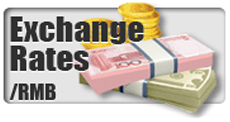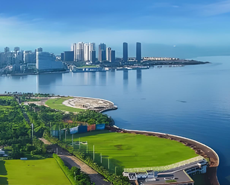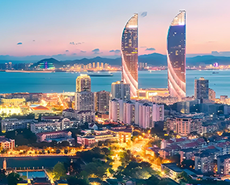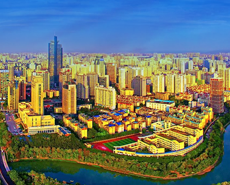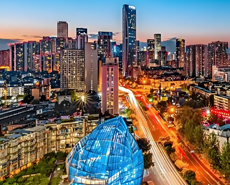To expand ferroniobium application and sales driven by technology
----Interview with Wang Meng, GM assistant and GM of Nb Sector in CITIC Metal Co., Ltd.
CITIC Metal Co., Ltd. is a wholly owned subsidiary of CITIC Group, which mainly focuses on commodity trading and industrial investment with major products of ferroniobium, iron ore, steel products, nonferrous metals, coal, etc.
Asian Metal: Mr. Wang, thank you very much for this interview and please give us a brief introduction to latest development of your company.
Wang: The business of CITIC Metal is mainly divided into trading and investment and niobium business is one of our major focuses. We are the exclusive Chinese distributor of CBMM, which is the largest niobium product producer in the world. Meanwhile, we also hold a stake in CBMM and sales of ferroniobium cover all large and medium-sized steel enterprises in China.
Asian Metal: Will the pricing for Brazil-origin ferroniobium be affected due to accelerating depreciation of RMB? What’s the action of your company?
Wang: First of all, the devaluation of RMB indeed increases the cost of ferroniobium imports, but we believed that RMB will see no sharp depreciations. Therefore, we will maintain current prices in short term in order for strategic partners and afford losses resulted from fluctuating exchange rate. However, if RMB depreciates further, we will make necessary adjustment after negotiation with partners from upstream and downstream industries, which will start from two aspects. On one hand, we will try to control cost by way of Forward Settlement and Sale Exchange, etc. and on the other hand to look for cooperation with partners based on mutual profit and risks.
Asian Metal: What are the major applications for ferroniobium in China at present and what are their market share and status of development?
Wang: 90% of global niobium products are used in steel industry with 9% in high-temperature alloy and aerospace fields and1% in industries of nanocrystalline, catalyst, optical lens, quantum physics, etc. As for China, about 93% of niobium products are used in steel industry, about 5% in nanocrystalline industry and others in high-temperature alloy industry. As a result, ferroniobium is the most widely used product in steel industry, which is mainly applied in four fields of pipeline, automobile, structure and stainless steel. As for pipeline industry, the application in China is in line with that in other parts of the world, but the difference is significant in that in automotive steel, structural steel and stainless steel industries, which is much more prominent in special steel industry, also the part in need of being enhanced in the future.
Asian Metal: What are the similarities and differences between domestic and overseas ferroniobium? Will they affect each other in certain condition?
Wang: The differences lie in raw material and production process. Domestic material is mainly produced from niobium oxide separated from tantalum and niobium ores and then niobium oxide is smelted into international standard ferroniobium 60A. However, imported ferroniobium is produced by way of raw ore flotation and purification niobium oxide, which is advantageous in production cost. In addition, the supply of domestic ferroniobium is limited, which can’t satisfy the demand in China. As a result, there will be influences in certain condition, which however will be limited.
Asian Metal: What’s your opinion on the ferroniobium market in Q2?
Wang: It is predicted that the demand for ferroniobium will be well on the whole this year, but it is difficult to predict the price increase at present. We think that it will be expectable for demand in fields of automotive steel and stainless steel in the future. As in structural steel industry, the approval of some large infrastructure projects will help to gradually boost the demand for niobium-containing high-strength steel in China.
Asian Metal: Luoyang Molybdenum has officially completed the acquisition of niobium mine of Anglo American in H2 2016. Will this affect niobium ore imports later this year?
Wang: We look for mutual benign development between industrial peers. CITIC Metal and CBMM has been committed to the promotion of niobium products, in order to make the market bigger, boost the demand for niobium rather than vicious competition. The ferroniobium industry develops from accumulation to explosive growth and the imbalance in demand and supply in different stages will strike the market. As a result, we look forward to reaching a consensus within the industry and jointly maintaining order for the industry.
Asian Metal: What’s your prediction on demand in downstream industries and major application fields? Does your company plan to lead the Chinese ferroniobium import market to the right track?
Wang: We always stick to the strategy of “sales driven by technology”, put large qualities of funds in research and development, focus on sharp gaps in technologies between China and international advanced level, set up “production-study-research-application” projects with major partners from fields of energy pipelines, automobiles, construction, etc. which are in close relation with steel industry and national economic development to promote R&D and application in niobium-containing steel technologies and boost qualities and upgrading for steel products and downstream products. As for the prospects, we can illustrate according to the indicator for intensity consumption of ferroniobium. The current consumption of ferroniobium in China is 22g for 1t of steel, while the international average demand is 50g, which can reach 80-100g in developed countries like Japan, US, etc. That means the product structure of our steel still lags behind that in developed countries, which also reflect the potentiality of our industry. There is a long way to go from 22g to 50g per ton of steel and thus we will continue to expand the market through technological cooperation and R&D, boosting downstream application and making greater contribution to structural adjustment, product upgrading, national supply-front reform and Made in China 2025. As the leading enterprise in ferroniobium industry, we are committed to building long-term and win-win cooperation with domestic customers to ensure adequate supply and stable quality, and provide professional technical and commercial services.
Asian Metal: Thanks again for this interview and wish your business thriving!

